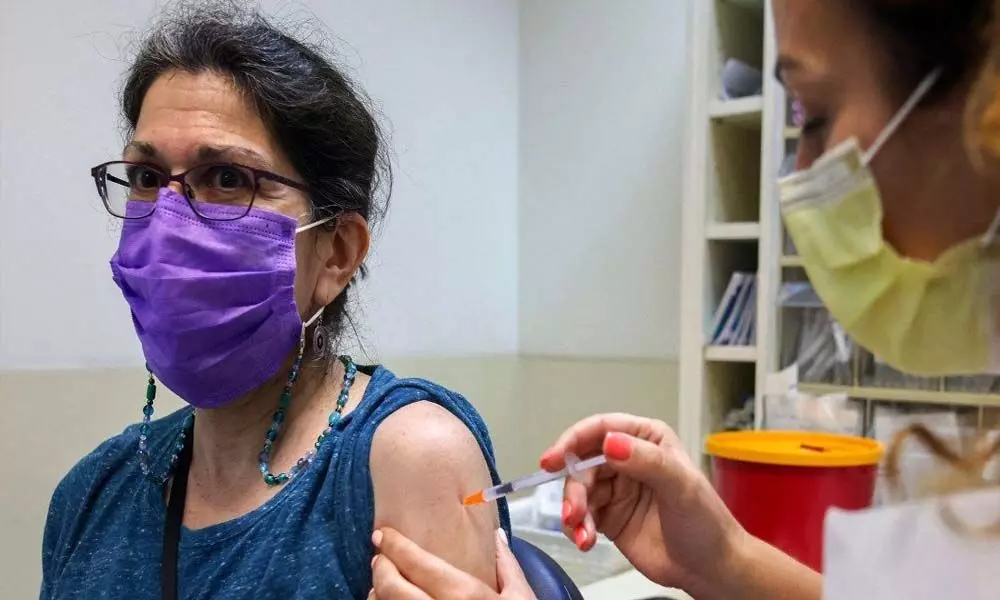A big push for booster-shot now could risk many lives
The World Health Organization is right to call for a halt to booster shots until more people in the developing world get their first vaccinations
image for illustrative purpose

A growing number of wealthy countries including Israel and Germany are now launching or making plans for Covid booster-shot initiatives for parts of their populations amid evidence of waning immunity among some of the vaccinated. That's prompted the World Health Organization to call for a moratorium on top-up shots through September or until all countries are at least 10 per cent vaccinated. In the US, boosters aren't officially allowed, but people are going out and getting them on their own. The WHO has it right - the priority should be first vaccinations as long as supplies are limited and there's a huge global disparity in protection.
Split
Existing data suggests the vast majority of those who are vaccinated don't need a booster yet. Rolling third doses out broadly at this point is an ethically questionable, potentially dangerous and ineffective way of fighting the pandemic.
The booster push is being fuelled by the spread of the highly transmissible delta variant and evidence that it reduces vaccine protection that may already decline over time. But even if the effectiveness of mRNA vaccines against symptomatic infection with delta is about 60 per cent (which is a conservative guess given varied estimates from different countries), shots clearly still offer a substantial degree of protection against even mild disease. And they are holding up exceptionally well on the most crucial measures: protection against severe disease, death and hospitalization.
Others may be motivated by recent data suggesting that vaccinated people who get an unlikely delta breakthrough infection may be more likely to spread the virus because of high viral loads. The reality is vaccinated people remain much less likely to get infected and when they are, they may be less likely to transmit it. They also tend to clear the virus from their systems faster, so they are likely contagious for a shorter period if they are at all. The data could eventually change, but most boosters are tough to justify at this point. Boosters likely offer only a modest increase in protection against infection, mild disease and transmission, and only a limited reduction in the already small risk of a severe case. Both effects pale in comparison to the benefit of initial vaccination, especially when it comes to severe disease and death.
There's a clear ethical and efficacy advantage for first doses, especially because many developing nations haven't vaccinated their highest-risk populations or health workers. Moreover, the risk of dying of Covid is heightened in poorer countries because they have weaker health-care infrastructure and less access to oxygen and treatments. Even if one ignores the moral question, boosters are an exceptionally inefficient way of stopping spread or cutting deaths given that the unvaccinated are the ones most prone to both of these things. It will take many more boosters to have the equivalent effect of even a small number of initial courses.
Vaccine supplies are limited and will be for some time, even with stepped-up donations from wealthy nations, so every booster shot effectively comes at the expense of a potential first vaccination. The costs of widespread booster shots could be very high and not just in lives in the developing world. Continuing to allow the virus to run rampant increases the chances that a variant will develop that's much more adept at evading vaccine protection or poses a greater risk to kids. That will extend the pandemic for everybody. Even if that's not the case, continuing waves of outbreaks will do lasting economic harm that the whole world will feel. Very limited booster use in the immuno-compromised and older populations, where vaccines don't work as well, is more justifiable. But even in those groups, the case will be a whole lot stronger when a much larger portion of the world has a chance at a first dose. There needs to be a very high bar for broader use. The wealthy world has already vacuumed up an outsize share of doses without investing nearly enough in covering others. It's past time to think about the consequences of continuing down that path. (Bloomberg)

